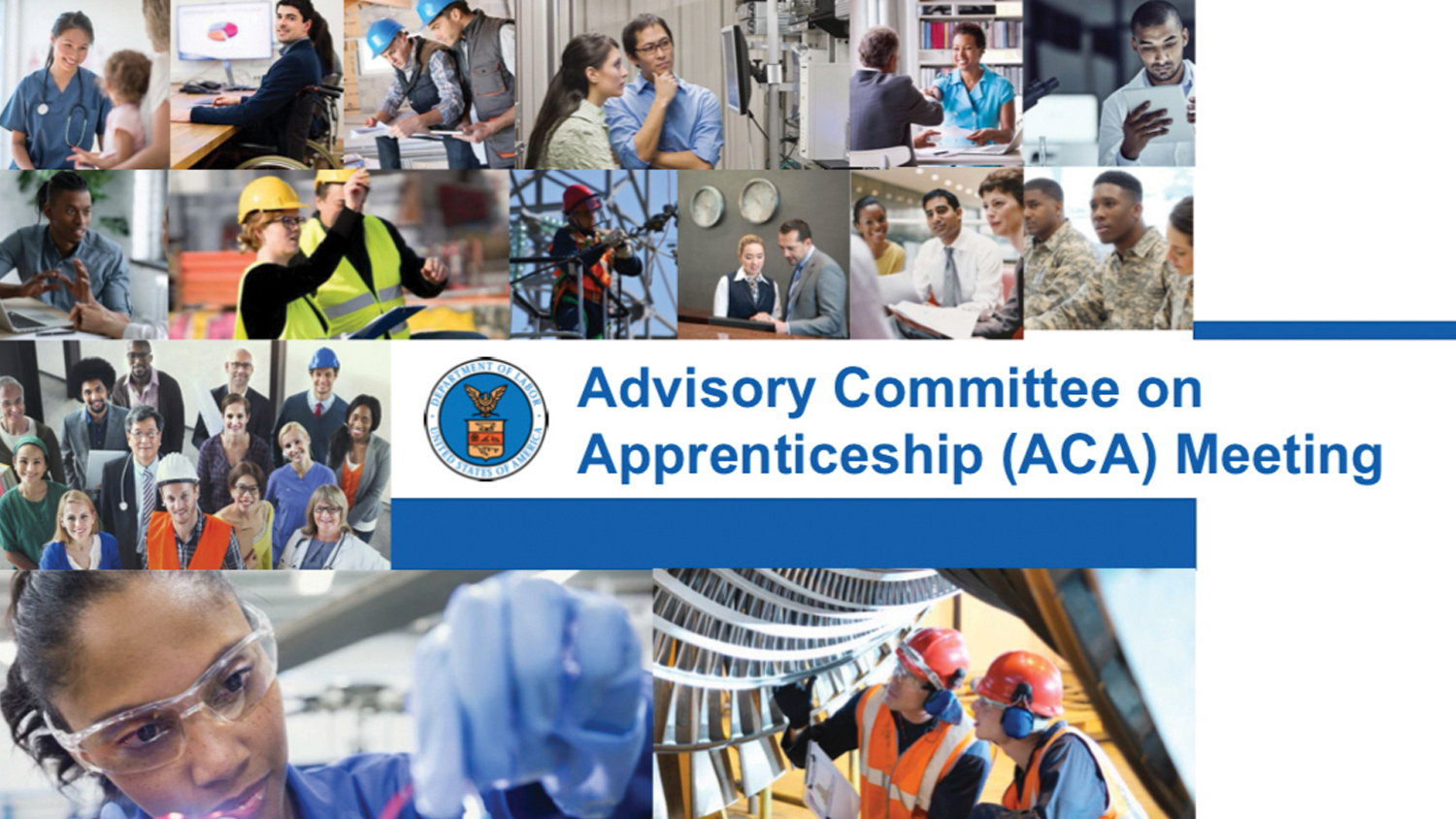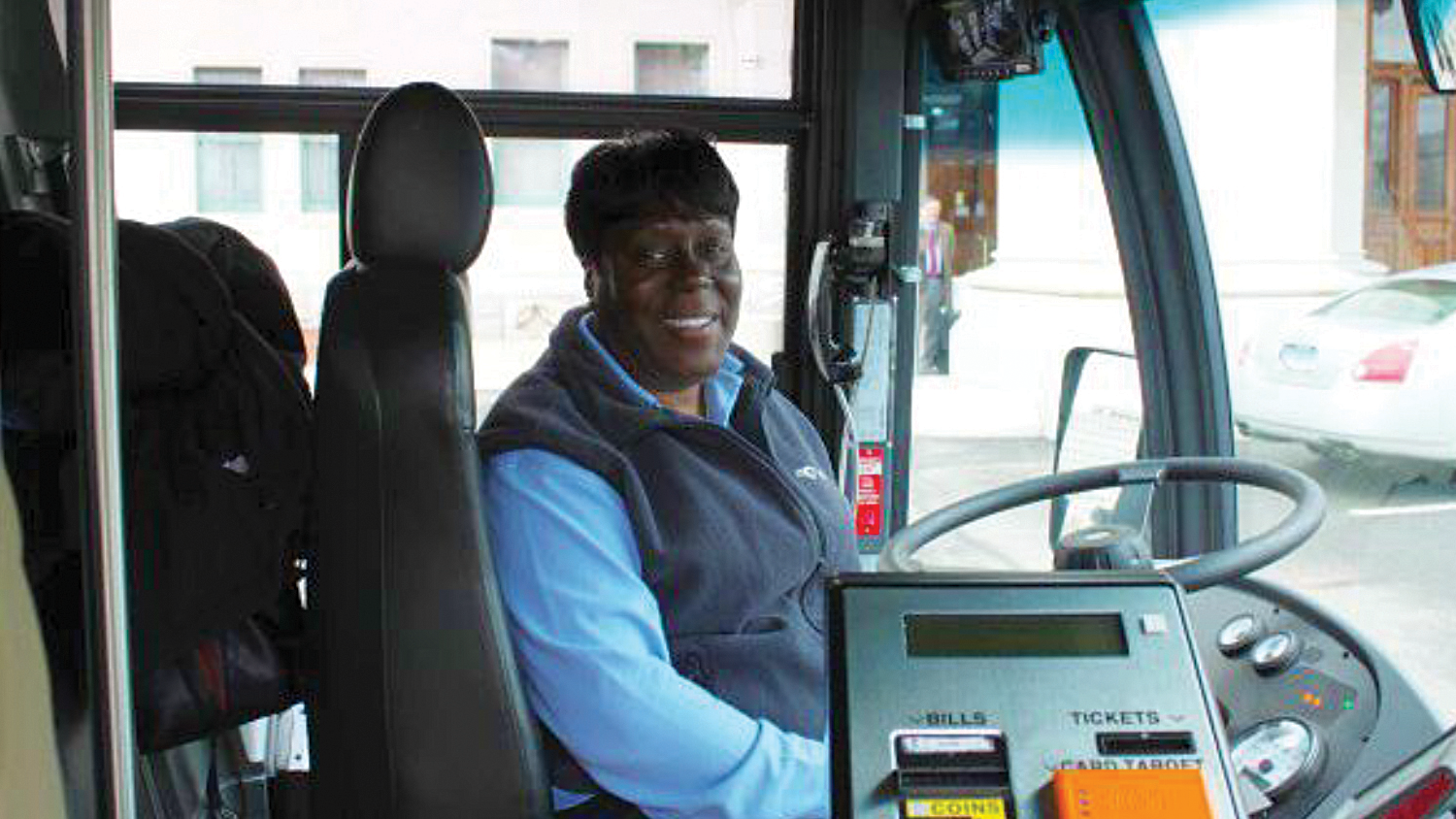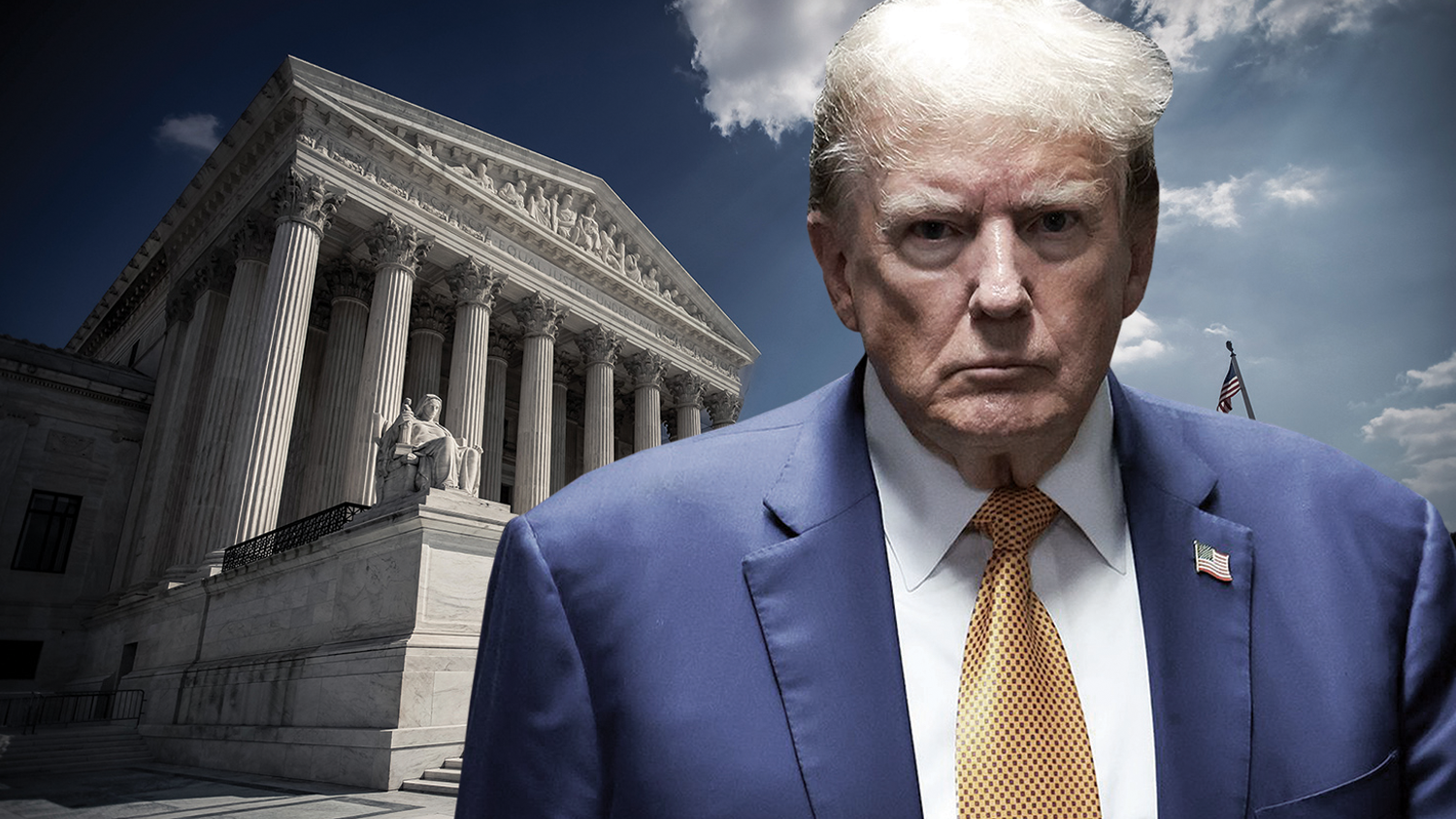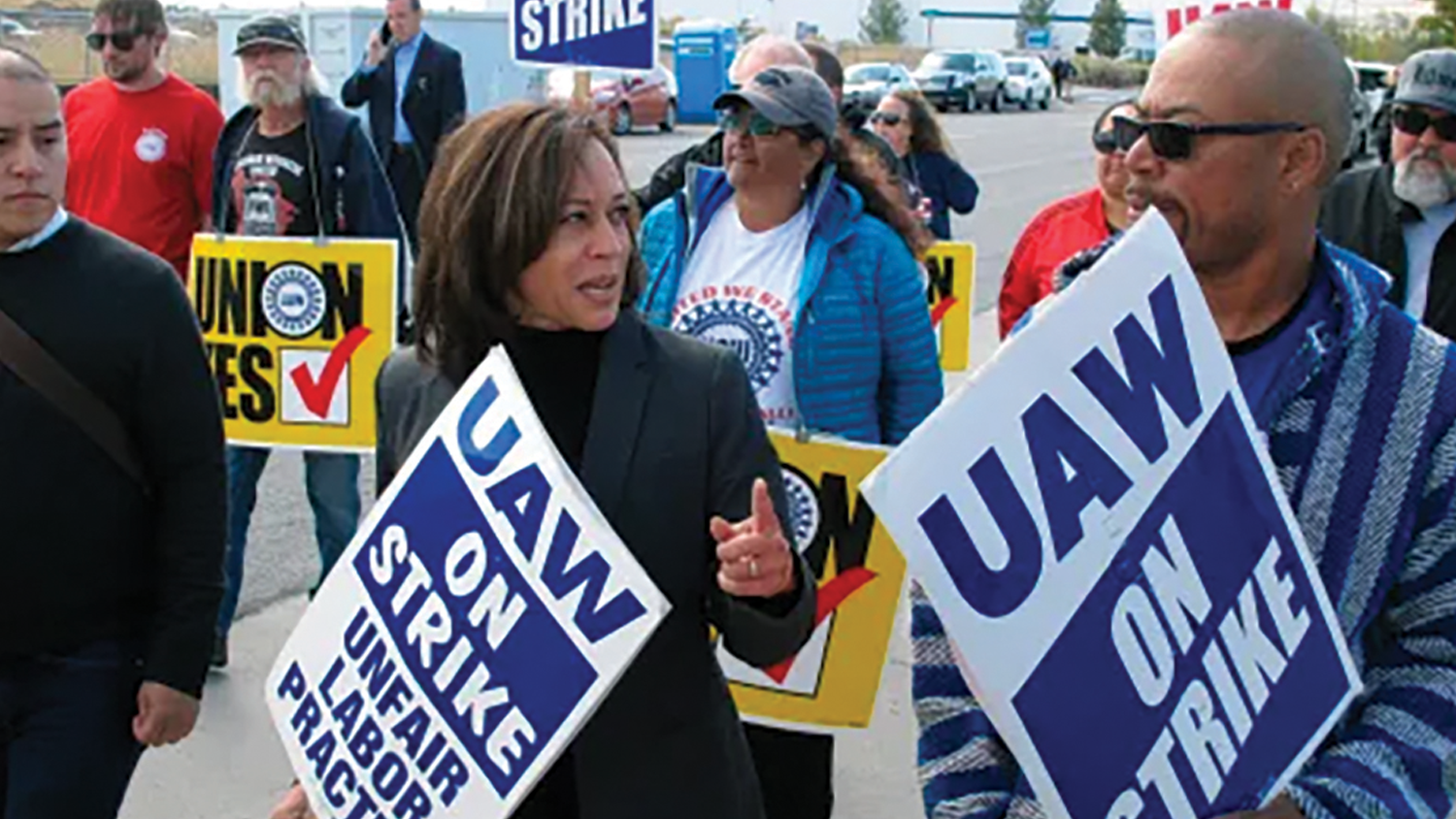Harris VS Trump - Comparing the Candidates on Issues that Matter Most to ATU Members
The 2016 election of Donald Trump drastically impacted ATU members and all Americans. Over four years, Trump’s policies resulted in illness, injury, and even death for countless transit workers. He starved public transit of crucial funding, weakened unions, and stole the hard-earned wages of working families to line the pockets of the ultra-wealthy.
What did Kamala Harris, as a full partner in the Biden Administration, do differently? A lot. Below we have put forth a comparison of Harris and Trump on the issues that matter most to our members, our Union, our industry, and working families.
ISSUE - Transit Funding
Trump: Slashing Transit Funding
During his four years in office, Donald Trump talked a lot about infrastructure. He promised over and over again to invest in roads, bridges, and transit. Unfortunately, his promises were empty. In fact, he did the opposite. In February of 2020, the Trump Administration proposed cutting billions in discretionary spending in the Department of Transportation budget. The proposed budget cut discretionary spending by 13 percent, including deep reductions in spending on transit. Trump cut more than $500 million in transit grants.
One month later, the COVID crisis hit. Transit revenue quickly dried up as ridership plummeted. In response, Trump proposed $0 for transit in the Coronavirus Aid, Relief, and Economic Security (CARES) Act. If that bill had moved forward, public transportation in America would have shut down. Transit-dependent riders, including many first responders, would have lost their ride to work. Hundreds of thousands of ATU members would have been laid off, and our Union likely would have folded. Trump left us out to die. Thankfully, Democrats in Congress fought back and provided billions of dollars to save U.S. bus and rail service.
Harris: “Keep Transit Services Running”
One year later, Vice President Harris led the Biden Administration’s effort to save transit once again as the CARES Act funding ran out. The American Rescue Plan Act of 2021 (ARP), included $30.5 billion in federal funding to support the nation’s public transportation systems as they continued to respond to the COVID-19 pandemic. Moreover, Harris ensured that the transit funds, unlike traditional grants, would be used exclusively for operating assistance to pay the wages and benefits of transit workers.
“Through our Department of Transportation today, we are also allocating $2.2 billion in funding from the American Rescue Plan, thank you Congress, to 35 transit agencies spread across 18 states. This funding will help communities employ more transit workers and keep transit services running.”
– Vice President Kamala Harris, March 7, 2022
But Harris didn’t stop there. Later in 2021, the Biden/Harris team pushed the biggest transportation infrastructure bill in American history over the finish line. The Infrastructure Investment and Jobs Act reauthorized the federal transit program for five years, providing significant increases in investment to put public transit agencies on a path to modernize their systems and meet the growing and evolving demands of our communities.
The bill provided $107 billion for public transit, an increase of $41.1 billion (63%) from previous levels. While Republicans in Congress pushed to end transit operating assistance, Harris fought to maintain FTA policies allowing funds to be used to pay transit workers’ wages and benefits. As a result, all systems may use their funds for preventive maintenance, and smaller communities can still use Federal Transit Administration (FTA) funds for any operating expenses.
By the way, last year, Harris’ running mate, Governor Tim Walz, signed a wide-ranging transportation bill in Minnesota that included money for a new passenger rail line and recurring funding for the Twin Cities Metro Transit system. Subsequent legislation also mandated that highway projects consider climate impacts before they qualify for state funding. The measures are among the most progressive climate and transit provisions passed at the state level.

ISSUE - Transit Workforce Development
In today’s changing world, labor/management apprenticeship programs are key to helping workers get the skills they need to keep up with changing technology. This is especially true in the transit industry. Twenty years ago, mechanics could get by with some spit and glue and their tool belts. Now, with electric buses and other sophisticated zero emission vehicles hitting the roads, our members need workforce training more than ever before.
Trump: Cuts Investment in Job Training Programs
In May of 2017, Trump’s budget proposed a 40% cut to job training programs, to $1.6 billion from $2.7 billion. The cuts would absolutely devastate the innovation and new models of jobs training. The next month, Trump signed an executive order that cut back the federal government’s role in creating and monitoring apprenticeship programs, a move applauded by big business.
Harris: Supports Zero Emission Workforce Development
Vice President Harris has called electric buses “One of my favorite topics.” Her Administration’s BIL is providing $5.25 billion for Low or No Emission (Lo-No) Bus Competitive grants. Significantly, under Harris, 5% of this funding must be used by transit systems to fund workforce development training, including registered apprenticeships and other labor-management training programs. More than $500 million is set aside for training. In awarding competitive bus grants for projects related to zero-emission vehicles, the BIL requires transit systems to submit a zero-emission transition plan that demonstrates a long-term fleet management plan with a strategy for how they intend to use their funds. And, transit systems must examine the impact of the transition to zero emission buses on the current workforce and avoid the displacement of the existing workforce.
“This year, our Department of Transportation will make available nearly $1.5 billion in grants to help cities and towns electrify their fleet of public buses, build the infrastructure to support their fleet, and train workers to run it. These grants will make public transit more reliable and more affordable, which of course means shorter waits and more reliable commutes for folks who need public transit to get where they need to go. These buses will be built in America. And these grants will also be used to train drivers and mechanics to operate, maintain, and repair this new technology. This investment will create good jobs, jobs of the future.”
– Vice President Kamala Harris, March 7, 2022.
ISSUE - Transit Safety
Trump: Fails to Act on Safety Regulations to Protect Transit Workers
ATU members will never forget when Trump’s U.S. Department of Transportation (DOT) in May of 2019 declined to act on Congressionally mandated regulations protecting transit workers from the risk of assault. Just days later, our Local 1593-Tampa, FL Bus operator Thomas Dunn had his throat slit by a deranged passenger, killing the driver instantly. Since then, assaults on transit workers have skyrocketed nationwide. ATU members regularly get shot, stabbed, punched, and sexually assaulted. Yet, Trump said taking action against transit worker assault was “unnecessary.”
Harris: Strong on Protecting Transit Workers on the Job
Vice President Harris has taken the opposite approach. With assaults on transit workers at an unacceptable level, the Biden-Harris Administration called on the nation’s transit agencies to take further action to protect these critical frontline workers. In December of 2023, FTA published a proposed General Directive on required actions regarding assaults on transit workers in the Federal Register that will allow it to better assess and address the risk frontline transit workers face.
Moreover, transit workers and riders will soon be much safer on the bus thanks to game-changing, life-saving regulations published in April of 2024 by the Biden/Harris team regarding Public Transportation Agency Safety Plans (PTASPs).
The new regulations, authorized by the BIL, finally shift decisions and actions on safety issues away from transit management - which has shown a clear disregard for workers’ health and safety - and into the hands of frontline workers and unions, who are far better equipped to deal with such matters.

The PTASP regulations require labor-management safety committees, with equal numbers on each side, to develop strategies and solutions to protect workers from assault as well as other safety hazards. The regulations require PTASPs to be developed by a committee of front-line workers, and they force management to carry out such safety risk reduction programs for transit operations by reducing the number and rates of safety events, injuries, and assaults on transit workers. Now, workers will have the opportunity, based on sound data, to make the case in safety plans that barriers or other protections are needed to keep them safe. And according to the regulations, if agency safety plans call for barriers, management may no longer say no. Under previous regulations, the PTASPs were developed and approved solely by management.
With these regulations, the Biden/Harris Administration fulfilled a promise to finally provide protections for transit workers under assault.
The Harris team is now working with the ATU on the next step, which is to require minimum vehicle safety standards for buses that will finally keep unauthorized persons out of the bus operator workstation. A Harris victory ensures that these regulations, which have been pending since 2016, will be on the top of DOT’s agenda in 2025. However, a Trump win will kill the regulations and maintain the status quo.
ISSUE - Economic Policy
Trump: Plan to Cut Taxes for Corporations
Tax policy will be a key issue in Washington next year. The next president will have to work with Congress to address the tax cuts Donald Trump gave to wealthy Americans in 2017. That bill ended the state and local deduction, making it very hard for working families to keep food on the table. And for ATU members who have driven for years and need to retire soon due to chronic medical problems, the Trump tax plan eliminated the ability to deduct unreimbursed medical expenses exceeding 10% of adjusted gross income. Under this obscene bill, the 1% got even richer through massive corporate and estate tax giveaways, leaving the rest of us behind.

Harris: Tax Plan Calls on Wealthy to Pay Their Fair Share
Vice President Harris has a different approach. The Harris tax plan would raise taxes on high-income Americans through two avenues: First, by increasing the rate they pay on existing income taxes, and second, by more broadly reshaping the taxation of investment gains for the wealthiest taxpayers. On the campaign trail, Vice President Harris has rolled out spending plans and several tax cuts aimed at benefitting working families, including a more generous child tax credit. She also plans to ease rent increases, boost first-time home buyers, and end grocery price gouging.
ISSUE - Unions
In 2018, in a sharply divided 5–4 decision, the U.S. Supreme Court prohibited public sector unions from collecting any fees from nonmembers. The Janus v. AFSCME case overturned laws in the 22 states that had not adopted “right to work” policies. Justice Neil Gorsuch cast the decisive fifth vote in favor of killing public sector unions. Who appointed Gorsuch? Donald Trump, of course.
While Trump tried to convince unions to support him in 2016, a leaked White House memo outlines the president’s true intentions – to destroy unions, get rid of worker protections, cripple workers’ ability to organize, and increase profits for corporations.

Trump: Rolled Workers’ Rights to Join Unions
Under the Trump Administration, the National Labor Relations Board (NLRB) rolled back workers’ rights to form unions and engage in collective bargaining with their employers. The Trump board issued a series of significant decisions weakening worker protections under the National Labor Relations Act (NLRA).
Trump also restricted union representatives’ ability to advocate for their members on the job, targeted workers’ freedom to negotiate on workplace issues, including reasonable accommodations for those with disabilities, employee training, overtime, telework, and flexible work schedules. He also repeatedly turned a blind eye to misclassifying workers as independent contractors.
Trump recently praised Elon Musk for firing workers who went on strike, intimidating workers who might want to join a union:
“You’re the greatest cutter,” Trump told Musk. “I look at what you do. You walk in and say, ‘You want to quit?’ I won’t mention the name of the company, but they go on strike and you say, ’That’s OK. You’re all gone.’”
– Donald Trump, August 12, 2024.
Harris: Walks Union Pickets Lines
In contrast, the Biden/Harris team has been without question the most pro-labor administration in U.S. history. They have increased workplace safety and health, reinstated critical safety protections and ensured that all OSHA officials understand the consequences of not having safety standards in place. Harris has walked on picket lines.
Biden and Harris have executed their plan to grow a stronger, more inclusive middle class by strengthening unions and helping all workers bargain successfully for what they deserve.

This administration has:
Checked the abuse of corporate power over Labor and held corporate executives personally accountable for violations of labor laws;
Encouraged and incentivized unionization and collective bargaining; and
Ensured that workers are treated with dignity and receive the pay, benefits, and workplace protections they deserve.
Harris is a strong supporter of the Protecting the Right to Organize (PRO) Act, which promises to restore the power of workers to organize and negotiate on the job. The PRO Act would impose appropriate financial penalties on companies that break the law.
CONCLUSION - Every Vote Counts
There are 2.7 million union members in the battleground states. That means a lot, because roughly 45,000 votes in the key states decided the election four years ago, and in 2016. Blue collar voters will decide this election.
Sometimes, in past elections, it’s been hard to find differences between the candidates’ views on key pocketbook issues. So, people simply voted based on social matters, like religion, or guns. We urge you to make your decision based on your job and the health and safety of your family. If you are not registered, please do so immediately. Vote as if your life depends on it – because it does.